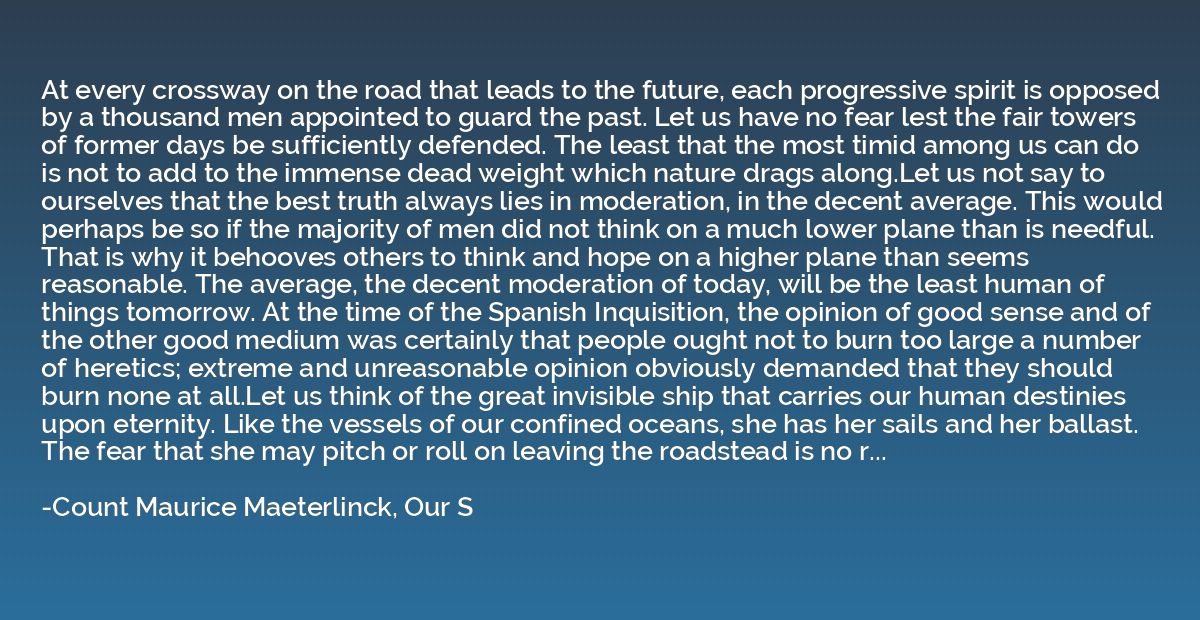Count Maurice Maeterlinck, Our S Quotes
A collection of quotes by Count Maurice Maeterlinck, Our S.
Count Maurice Maeterlinck was a Belgian playwright, poet, and essayist born on August 29, 1862, in Ghent, Belgium. He is widely recognized as one of the foremost figures of Symbolist literature, a movement that emerged in the late 19th century and emphasized subjective experience, inner emotions, and mysticism.
Maeterlinck gained international acclaim with his play "The Intruder" (1890), but it was his later works that solidified his literary reputation. "The Blind" (1890) and "Pelléas et Mélisande" (1892) are among his most influential plays, characterized by their atmospheric settings, rich symbolism, and portrayal of human vulnerability.
Over the course of his career, Maeterlinck became associated with the decadent and spiritualist movements, exploring existential themes and the human condition in abstract and poetic ways. He was awarded the Nobel Prize in Literature in 1911, primarily for his drama, which the Swedish Academy referred to as portraying "the tragic in destiny."
In addition to his plays, Maeterlinck published numerous essays and philosophical works. His philosophical treatise, "The Treasure of the Humble" (1896), expressed his belief in the inherent wisdom of nature and advocated for a deeper understanding of the mysteries of life.
Count Maurice Maeterlinck's profound contributions to the Symbolist movement and his exploration of existential themes continue to influence literature and theatrical works to this day. He passed away on May 6, 1949, in Nice, France, leaving a lasting legacy in the world of literature.



